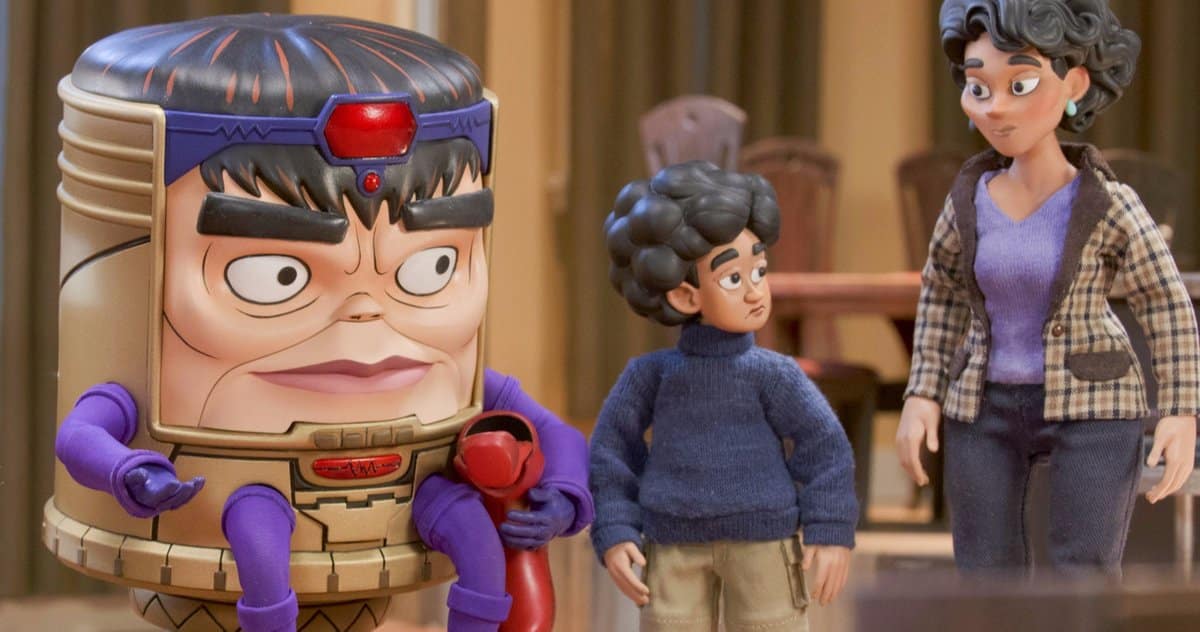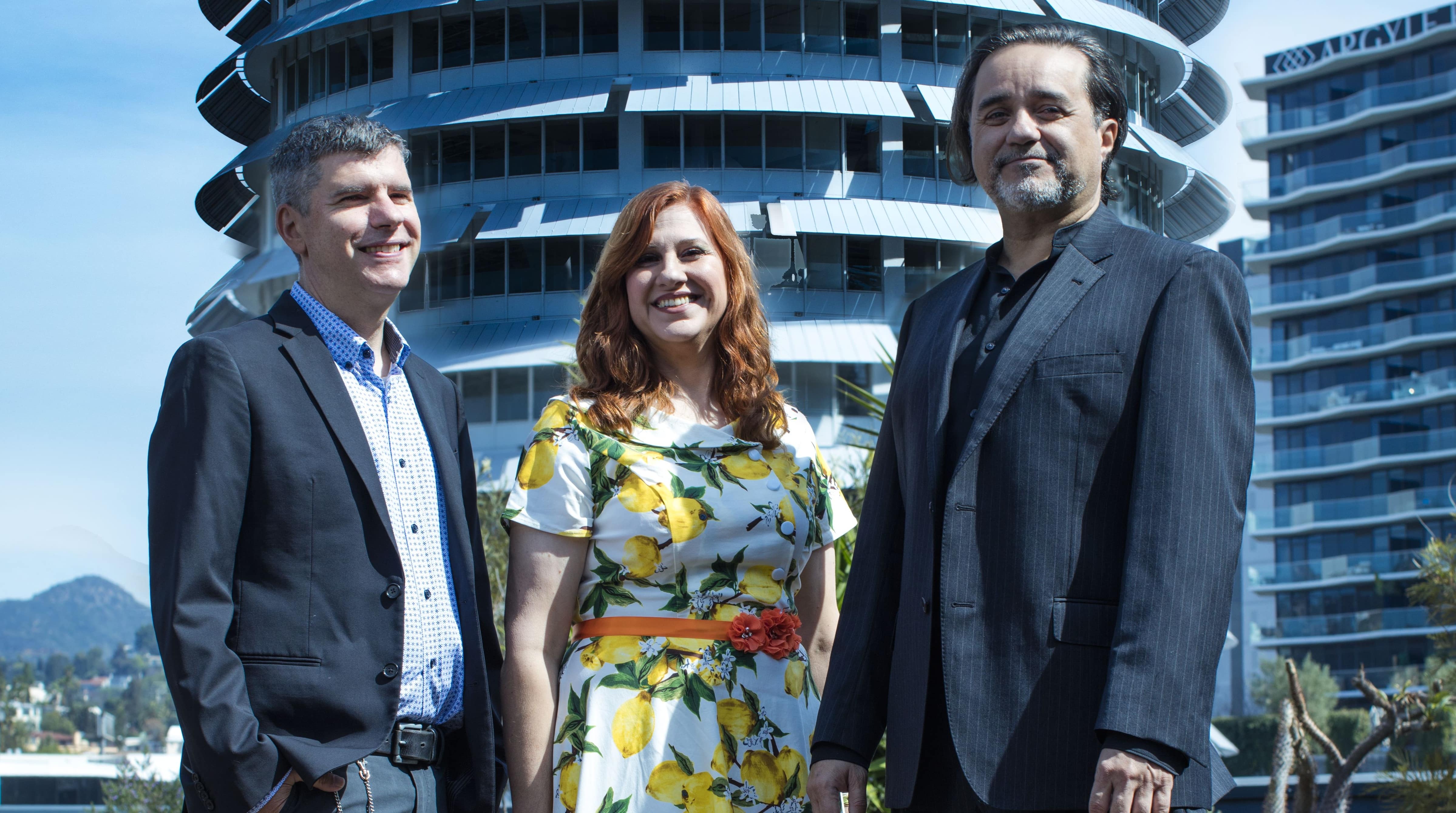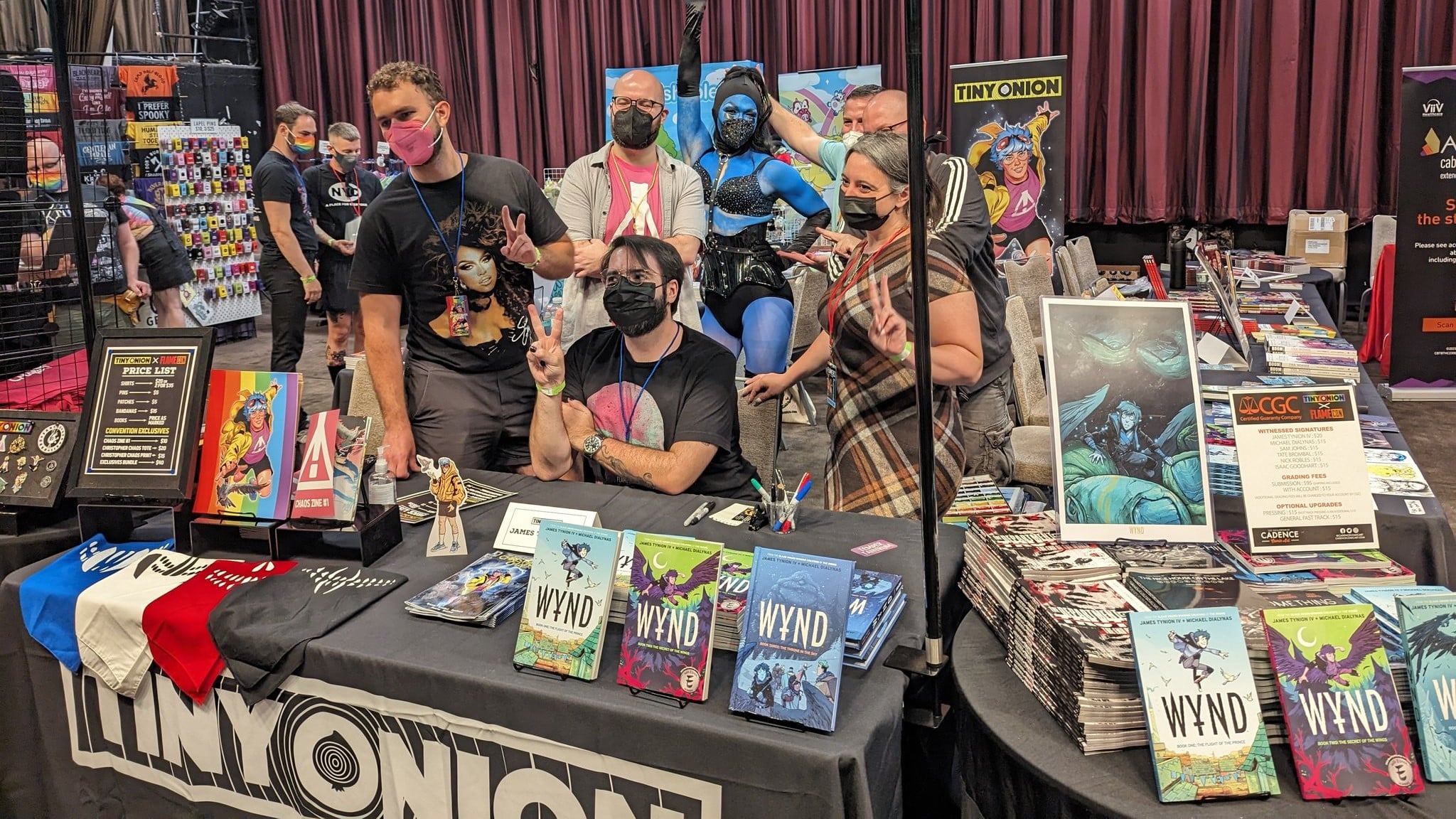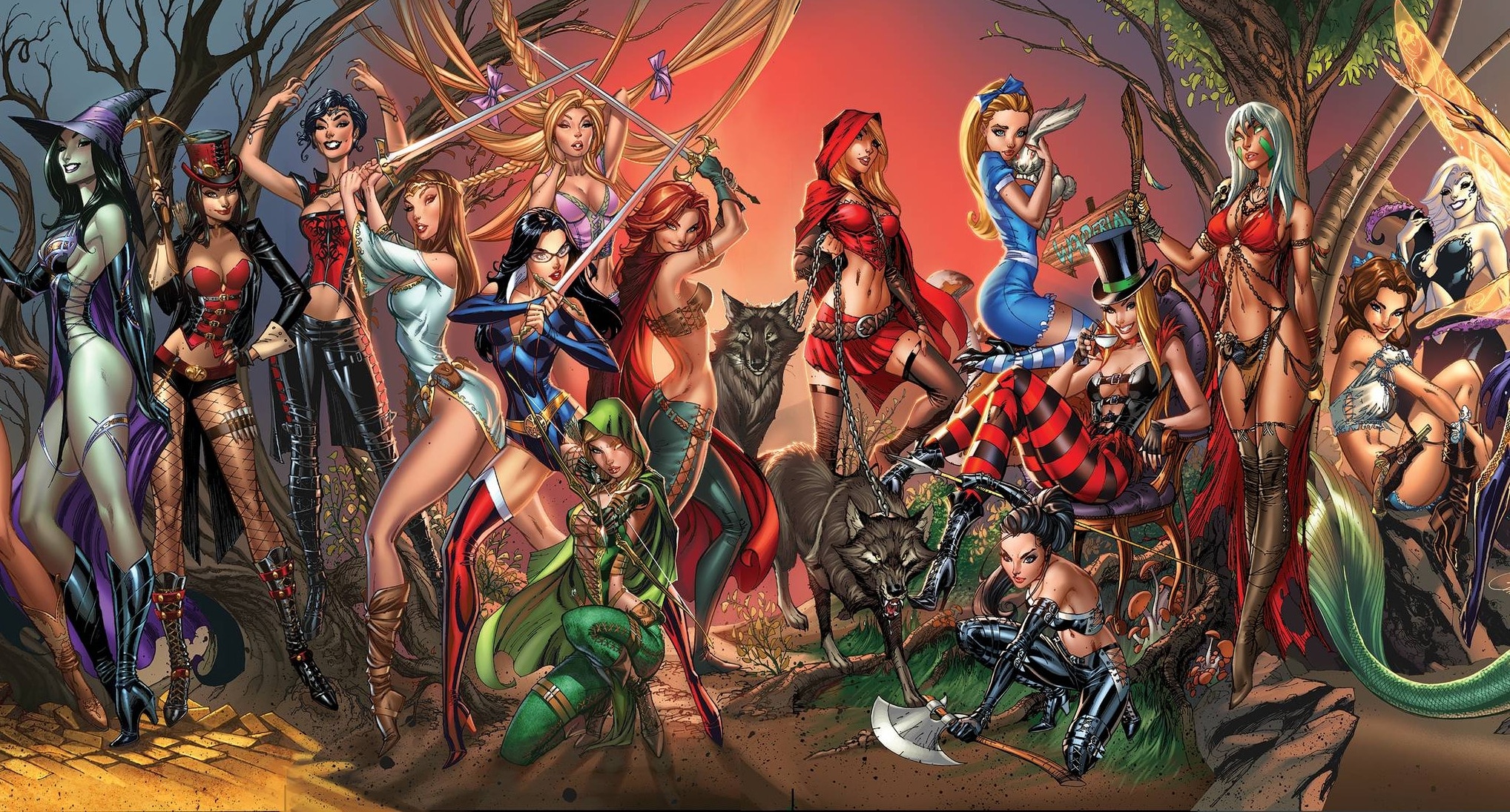Back in February, Zachary Jenkins had the opportunity to sit down with M.O.D.O.K. Head Games and Hulu’s M.O.D.O.K. writer/series co-creator Jordan Blum to talk about Head Games and what to expect from the Hulu series. Now that Season One of M.O.D.O.K. has been released, I caught up with Jordan to talk about the series and its surprising emotional depth.
[Spoiler Alert: This interview does reference storylines from the entire season. I recommend you watch all ten episodes before reading.]

Adam Reck: At the core of Season One of M.O.D.O.K. is the story of a family going through a divorce. Your protagonist is a man (organism) who is reevaluating his life and how he connects to his kids. How in the world did you pitch this to Marvel and Hulu? And what was the inspiration for wanting to tell this kind of story?
Jordan Blum: When we first started asking questions like “where does M.O.D.O.K. go at night when he leaves that Captain America panel?” or “what does it take to actually run an evil organization?” It led us to the basis of the show. The more we discussed M.O.D.O.K. on a meta-level, as a b-list villain who aspires to be a-list and is self-conscious of it, we sort of arrived at this mid-life crisis shape for the first season. We had to humanize an angry, floating, super-villain murder-head, and the idea of a man who lost sight of his goals and his family felt really relatable. M.O.D.O.K. is a messy character and so is his family. We wanted to subvert certain sitcom tropes like the forgiving wife and the easy emotional wrap-ups at the end of each episode. M.O.D.O.K.’s choices have long standing repercussions and he has a long road to fixing them.
AR: While the show certainly goes for laughs, I was surprised by how somber some of the show was. M.O.D.O.K. hitting rock bottom in his trash apartment and realizing he has no idea how to communicate with his kids are very real-life, down to Earth scenarios. How was the decision made to go this darker route with the story instead of a traditional superhero or even a traditional anti-hero story?
JB: We knew the humor for the show was going to dip into absurdity so we really wanted to ground the emotional through line. And again, no easy fixes. For every step forward is two steps back for M.O.D.O.K. and the rest of the characters. He’s done some real damage to the people in his life and those wounds don’t heal easily. M.O.D.O.K.’s ego is telling him he should be able to have it all, work and family. You want to see him succeed, you’re rooting for him but it may not be possible. This all leads to the finale. A choice is forced upon him and by that time in the show you might’ve forgotten he’s a super-villain, he’s made all this personal growth, he’s become this underdog Rudy-like hero of his own series. Well… we didn’t forget he was a villain and… well… don’t want to spoil it.

AR: I was also impressed by how almost every single character (I’m thinking of Monica, Austin, especially Gary!) is given some depth and allowed their moment of truth. Even Wonder Man, who is played largely for laughs, has his moment of realization that he’s been used and speaks honestly about how he felt. Why was it important to you that characters who probably could have been more one dimensional were fleshed out like this?
JB: That’s nice of you to say. I really wish we had even more time to explore the characters. I guess it comes from the idea that every character is the hero of their own story. I mean literally that’s the concept behind a show about a monster like M.O.D.O.K. But this goes for every side character too. They can’t simply exist for conflict or laughs. I think Austin is the best example of this. He’s such a foil for M.O.D.O.K. But as the series went on we started to ask why someone would betray the human race? Sure, he’s a corporate stooge with lofty goals but he’s still human. He’s got to love something. So, we decided that he loves his dog Sherlock.
AR: By the time episode eight rolls around, where Arcade and Murderworld come into play, each character has to confront their own preconceived notions of what the rest of their family wants of them and how they want to be perceived. This is a theme throughout the season. How important was it that we see each character’s insecurities and weaknesses in relation to one another?
JB: As we were writing the series we realized it wasn’t just M.O.D.O.K. that was having issues, the entire family was fractured. The divorce had rippling effects across all of their relationships. Jodie got lost in her ambition, Melissa was feeling underappreciated, Lou was pushing people away. It felt like the best way to have these very internalized conflicts come to the surface was a family therapy episode set against a life and death battle in Murderworld. It’s a very Marvel way of doing an emotional bottle episode.

AR: The main villain of the series so far was not Monica, or Grumbl or even Hexus the living corporation. It was the younger, time-displaced M.O.D.O.K., bent on destroying his future self’s life. Is this something you considered? What your younger selves would have thought of what you’ve achieved or not, and whether they’d approve?
JB: Of course. If you’re telling a story about a mid-life crisis, what better villain than a younger, driven, more hopeful version of yourself who finally meets you and is instantly disappointed? It factors into M.O.D.O.K.’s arc. Am I the same person I built my identity around all those years ago? Do I still want those same things? Or have I grown and changed my priorities?
AR: One of the ways M.O.D.O.K. learns to better himself is to stop ignoring his wife’s creativity and follow her step by step “Jodify Your Life” program. What is it about people’s general hubris that makes them blind to the good advice staring them in the face?
JB: I think M.O.D.O.K. is obsessed with roles and identity. I’m the breadwinner, I’m going to take over the world, I’m the one allowed to get away with bad behavior. He’s stuck in this rut of how things are supposed to be even after everything has changed. I love that Jodie has supported M.O.D.O.K.’s dreams for years and when his come crashing down and hers take off he doesn’t have it in him to give her the same. It’s the most obvious proof that they’ve grown apart. That perhaps they aren’t compatible as a couple anymore.
AR: By the time we reach the end of Season One, M.O.D.O.K. is faced with a difficult question: If he can only achieve his ultimate creative dream without his family, is he willing to sacrifice not having them in his life so he can succeed? I feel like this is a dilemma many creative people face in terms of wanting to reach their goals. What inspired this being the crucial dilemma that closes out the season?
JB: I think it’s a relatable situation. Especially if you work in the arts. There’s a lot more sacrifice that goes into a profession that demands tons of mental space, commitment, time and heartache. There are no set hours. No leaving it at the office or turning it off. When you have a dream that doesn’t have a clear path you start to weigh what you’re willing to give up. Is it selfish or noble? Is it greedy to want to both? As a husband and father my family know that I’m living my dreams but how much does that excuse me from being present in their lives all the time? I honestly don’t have answers for any of these questions but I definitely wanted to explore them while making a silly, insane show about a frustrated Marvel oddity who can’t mindblast all his problems away.
AR: I am sure that most of the coverage of M.O.D.O.K. is going to center around its fun Easter Eggs and character cameos. But for viewers who invest in the entire first season, what do you hope their main takeaways are?
JB: I hope that the emotions land as well as the laughs. The best humor comes in the face of tragedy and that’s what we tried to do. I hope Marvel fans see this as a love letter to the comics. That we tried to do something different with the genre by embracing its weirdness, its creativity and its heart. And I hope Kirby would approve.
Adam Reck is the cartoonist behind Bish & Jubez as well as the co-host of Battle Of The Atom. Follow him @adamreck.bsky.social.






